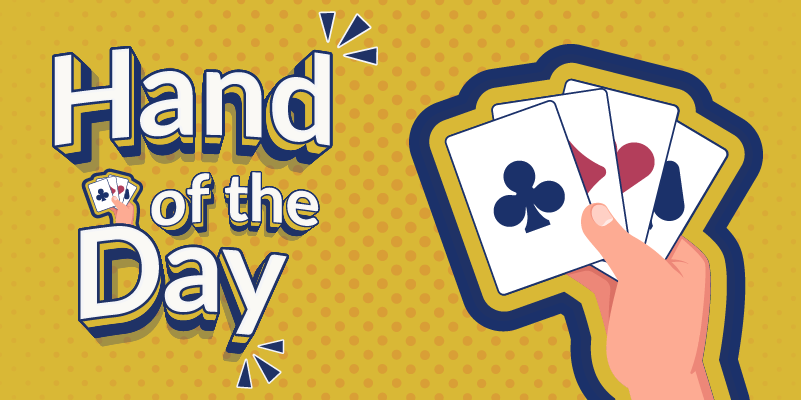


This article accompanies the quiz 'The Negative double'.
In this article we'll concentrate on negative doubles on the 3rd seat after a 1 level opening followed by overcalls at the 1 and 2 levels.
First off, what exactly is a negative double? A negative double is made by the responder after their partner opened then right-hand opponent overcalled on their first bid. In general, it shows 4+ cards in the unbid major and some points (depends on which level the overcall was made), but it might show other things too, as shown in the example below:
Example:
Partner opens 1♦ and your right-hand opponent overcalls.
a. You're sitting West
Here opponent overcalls 1♥, then Double shows 4 cards in Spades, meanwhile 1♠ shows 5+ cards in Spades (some partnerships have other agreement about this).
b. If after a 1♠ overcall, a negative double is bid (showing 4 cards in Hearts) and later in the bidding the same player bids 2♥, it means they have a long Heart suit with fewer than 10 points (with 10+ they would’ve bid 2♥ directly after the 1♠ overall).
Note that it is an opposite situation to Takeout Double: If the takeout double is followed by a new suit, then it’s a big double, showing extra points. While with a negative double and a later bid in the double suit, it shows less than a direct bid.
c. If partner opened 1♣ and the opponent overcalls 1♦, then a 1♥/♠ bids shows 4+ cards in ♥/♠ (some partnerships use other agreements) and double shows BOTH majors:
Showing both majors with a double is especially important if your other opponent supports their partner with 2/3♦ bid. Now, if your partner has a major suit, they’ll be able to bid it, safe in the knowledge that you have both majors.
d. If partner opens 1♥ and opponent bids 1♠, then double normally shows both minors (but it can also be used to show 1 long minor suit with fewer than 10 points).
e. Note, if you bid a new suit at the 2 level after your opponent's overcall, you need to have 10+ and 5+ cards in your bidden suit. So, if you have 10+ points but only 4 cards in the other major you’ll still need to use negative double and wait until later in the bidding to show your points.
After your double, in situations where your left hand opponent has then passed, your partner MUST bid, because your double on opponent's overcall was a negative double, and if they then pass, the double remains as a penalty and upon making it, opponents will make lots of points (each overtrick will gain them 100 points if not vulnerable and 200 points if vulnerable). So partner MUST bid, in order to cancel the double.
If, after the double, your left hand opponent bid something, then your partner has a free bid, and MAY pass, as the double is canceled by the opponent. They can bid though, if they have something.
An unusual situation arises when partner has points and good/long cards in the overcall suit; in this situation the strongest response might be to consider passing (especially if opponents are vulnerable), leaving the double as a penalty double.
a. Bidding 2 in "your" suit shows 4 card support and a minimum opening (12-14 points):
You're sitting West
Your double shows 4+ cards in Hearts so partner is "supporting" your Hearts (in the same as if you'd bid 1♥ and partner supported with 2♥). They will declare though, as they were first to actually bid Hearts (even though your double represented Hearts first).
b. Bidding 3 in "your" suit shows 4 card support with 15-17 points:
You're sitting West
c. Bidding 4 in "your" suit shows 4 card support with 18+ points:
You're sitting West
d. Bidding 1NT shows 12-14 points, stopper in opponent's suit, and no 4 card support to your suit.
You're sitting West
Here, it means that partner has 12-14 points, stopper in Spades, and no 4 card support in Hearts.
e. Bidding 2NT shows 18-19 points (if the overcall is at the 1 level), stopper in opponent's suit but no 4 card support to your suit.
You're sitting West
Here, it means that partner has 18-19 points, stopper in Spades, and no 4 cards in Hearts.
f. Rebidding their suit or bidding a new suit has the same rules as for rebids.
If your hand isn’t suitable for a negative double (no 4 cards in all other major or not enough points) then you need to pass with a minimum hand. But partner can re-open the bidding later (balancing).
Have a go at putting this into practice
Oren Lidor is considered one of the best bridge teachers in Israel, is the author of 5 bridge books, and teaches bridge to people from all over the world on BBO.



